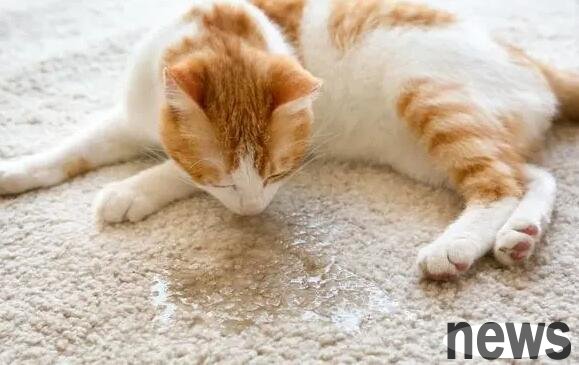What is the reason why a cat cannot urinate? It may be caused by a cat's urinary tract infection. If this happens to your pet, it is recommended that you take it to the veterinarian as soon as possible to rule out any possible illness or other problems.
Cats cannot urinate due to insufficient drinking water, or due to stress, such as sudden change to a new environment, frightened, etc. In addition, if a cat suffers from urinary system diseases, it will also experience frequent squatting in the cat litter box, urination, and urinary cessation. The owner can first touch whether the cat's bladder is full. If it is full, he needs to take the cat to the pet hospital for examination and confirmation to avoid delaying the condition.

1. Insufficient drinking water
If a cat usually eats a dry diet and rarely drinks water, then there is not enough water in the body to operate and metabolize, so it is impossible to form urine and excrete it out of the body. In this regard, the owner should induce the cat to drink more water or feed the cat some fruits and vegetables with high water content to help the cat replenish the water needed by the body and promote the formation of urine.
2. Stress causes
If the cat is under relatively high stress, such as suddenly changing into a new environment, hearing a loud noise, having strangers entering and leaving at home, etc., it may cause the cat to not urinate because it is too nervous. Therefore, the owner can try to soothe the cat's emotions or let the cat be alone to see if there will be improvement.
3. Suffering from urinary system diseases

If a cat frequently squats on the cat's litter box but can't urinary system diseases, it is necessary to consider urinary system diseases such as urethritis, cystitis, nephritis, urethral stones, bladder stones, kidney stones, bladder paralysis, etc. At this time, it is recommended that the owner immediately take the cat to a nearby pet hospital for examination. Through filming, urine tests, routine blood, biochemical examinations, etc., determine the specific condition of the cat's urinary system, and take corresponding treatment measures according to the specific situation.
